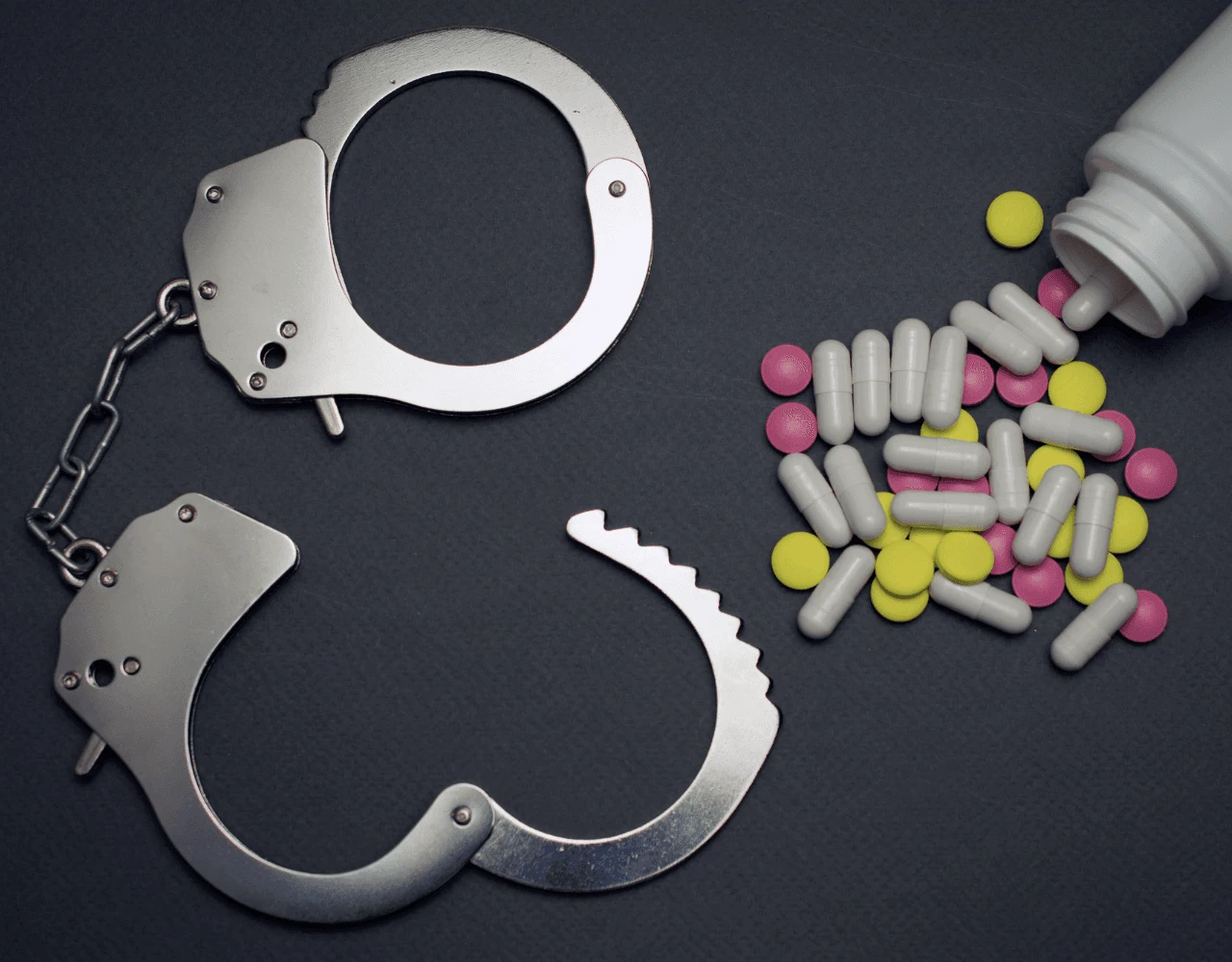Alternative Sentencing Options for Drug Charges in Chicago
2025-04-23T13:15:00
Illinois has very stringent driving under the influence of alcohol or drugs laws plus an Implied Consent Law, which means you agree to adhere to the law as a condition of being licensed to drive. The Implied Consent Law simply means that anyone who is operating a motor vehicle in Illinois has implicitly agreed to provide a blood, breath, or urine sample to a law enforcement officer who pulls them over at a traffic stop to test for drugs, alcohol, or other illegal substance violating Illinois DUI law. The real question most people have after their first offense is, do I need a lawyer for a first DUI in Illinois? Let’s answer that in a little more detail.

Like all states, Illinois DUI laws forbid people who have a blood alcohol content of 0.08 or higher from driving a motor vehicle. The legal blood alcohol concentration (BAC) level is different for commercial drivers at 0.04% and 0.00% for an underage driver. There’s an exception to the underage drivers’ 0.00 blood alcohol level if they are on a prescription medication containing alcohol or coming back from a religious ceremony. If you’re facing a drunk driving offense in Illinois, it’s imperative to seek legal representation. The experienced drunk driving lawyers at Ktenas Law can help you avoid revocation of driving privileges. To schedule a no-cost initial consultation, contact our skilled DUI lawyers law firm today at (312) 756-8652.
Although the criminal penalties of a first DUI can differ depending on how your drunk driving case plays out and if your DUI criminal defense attorney gets your drunk driving charges reduced or dismissed. Here are the potential drunk driving penalties for first-time offenders:

Besides the statutory summary suspension mentioned above, a first-time DUI offender will face a license suspension period of one year. However, the offender may apply for a restricted driving permit (RDP) or hardship license to drive to school, work, medical appointments, and/or alcohol or drug treatment. If your driver’s license has been suspended because of a first-time DUI conviction and you’re also facing a statutory summary suspension, you must install an ignition interlock device (IID) or breath alcohol ignition interlock device (BAIID) in your motor vehicle for the duration of the temporary driving privileges.
Typically, a first-time DUI violation is a misdemeanor drinking offense, and many judges hand down a standard sentence. If you were driving while intoxicated and there’s sufficient evidence to prove that, including failed field sobriety, tests, elevated blood alcohol content, witnesses stating you were driving recklessly; most drunk driving offenders opt to plead guilty. Here, DUI criminal defense lawyers might not help you.
However, if many factors could lead to additional penalties, such as an extremely high blood alcohol level or a motor vehicle accident resulting in bodily harm or death, or aspects that might reduce your criminal penalties, such as technical problems during your drunk driving arrest, it’s crucial to hire an experienced drunk driving lawyer to help you with your defense.
Related Content: Illinois DUI Statistics
If you’re not sure, an experienced DUI lawyer can help you recognize these factors and help you come up with a solid defense, and they can represent you before a judge.
If there are any doubts about your driving under the influence case, you may want to take a guilty plea. With plea bargains, you plead guilty in exchange for a lesser sentence from the prosecutor.
Blood alcohol content below 0.08%, questionable field sobriety test results, and technical issues with your DUI arrest, such as the arresting law enforcement officer not reading you your Miranda rights, questions regarding the accuracy of blood alcohol concentration can create doubts about the validity of your arrest. An experienced DUI criminal defense attorney can help you get your DUI charges dropped or reduced.
Read More: Will My License Be Suspended Because of My DUI arrest?
If your drunk driving violation is more than just a misdemeanor first-time drunk driving offense, hiring an experienced attorney is crucial. Instances, such as driving while impaired with a minor in the vehicle, an elevated alcohol concentration in your blood, and/or causing bodily harm, can turn a first-offense DUI into a felony punishable by severe penalties of one year or more in prison, range of penalties. A skilled DUI criminal defense attorney can have a better chance of reducing your DUI charges than you would on your own.
The rules of the Illinois Secretary of State’s office are complex and a high rate of license reinstatement applications are denied. It’s advisable that anyone seeking to get their driving privileges back after a license revocation period, particularly for driving under the influence of drugs or alcohol to seek legal representation.
The Illinois Secretary of State won’t grant any driving privileges unless the hearing officer is satisfied that you aren’t a risk to public safety and, often, that an ‘undue hardship’ has occurred after your loss of driving privileges. The burden of proving lies on you at the time of the administrative hearing. Thus, the state of Illinois doesn’t have to prove that you’re a risk; instead, you must prove to the satisfaction of the Illinois Secretary of State that you aren’t a risk. This is an enormous burden for most DUI offenders to meet, particularly those who have been arrested for more serious offenses or multiple offenses.
You must install a BAIID on your motor vehicle as a condition of qualifying for an RDP if:
If you have more than one drunk driving conviction, you may need to install a BAIID device in every vehicle that’s registered in your name. There are certain limited exceptions to the BAIID requirement, which are related to persons who drive leased vehicles or employer-owned vehicles. In Illinois, if you have two or more drunk driving convictions, you might be required to install a BAIID device for a period of five years before being eligible for full license reinstatement. The BAIID prevents drivers from driving while drunk. This device requires that a driver blows into it before they can start their vehicle. Also, the BAIID randomly requests breath samples while you’re operating a motor vehicle.
During a license hearing, the Illinois Secretary of State (SOS) considers many factors when establishing if a DUI offender is a risk to public safety. For instance, the Secretary of State may consider an alcohol evaluation or drug evaluation and any substance abuse treatment documentation completed by a recommended program, and character reference letters. In some circumstances, the Illinois Secretary of State may consider the support group letters and your testimony before a hearing officer.

The drug and/or alcohol evaluation together with your testimony may address issues such as the circumstances of your drunk driving arrest, including why a law enforcement officer pulled you over at a traffic stop, how much you were intoxicated, your opinion whether you were drunk, the results of any chemical testing, your alcohol addiction history, the reasons you would typically consume or use drugs in the past, whether your substance abuse treatment adequately addressed any underlying reasons for substance abuse, the lifestyle changes you’ve made, any support group involvement such as NA, AA, or non-traditional support group, and other previous driving or alcohol/drug-related offenses.
The Illinois Secretary of State may also consider other factors in both alcohol/drug and non-substance abuse cases such as your overall driving record, including previous moving violations, and car accidents, and your criminal history.
Choosing the right DUI criminal defense lawyer for a DUI in Illinois is difficult, especially because time isn’t on your side. You probably don’t have the time to interview a ton of DUI lawyers, weigh your pros and cons, and make an educated decision after weeks of deliberation. So, ask friends and family for referrals or conduct some research online.
Look for a Chicago criminal defense attorney who is well-recommended and has decades of experience handling DUIs. At Ktenas Law, our skilled DUI criminal defense attorneys have helped thousands of DUI offenders in Cook County, DuPage County, Kendal County, Lake County, Kane County, Will County, and throughout Illinois beat their DUI charges and we can help you too. To schedule a free initial consultation with our criminal defense law firm today at (312) 756-8652.
Learn More: 10 Ways to Beat a DUI case
When you meet with a DUI attorney to discuss your legal options and defense strategies, they will first ask you for details about your DUI arrest. The DUI lawyer will want to have the entire picture regarding what happened and the evidence the arresting officer has against you. Then, they’ll discuss your two plea options: not guilty or guilty, and you’ll go to trial. However, it’s imperative to note that in Illinois, plea bargains are unaccepted under DUI statutes.
Remember to ask how the DUI attorney will handle your drunk driving case. You may be surprised at the many legal options available to you. There are many loopholes and defense strategies that an experienced DUI attorney can use to get you out of a DUI in Illinois and avoid a DUI conviction. These include:
Further, ask the DUI attorney about their rates and choose an attorney who is patient and whom you trust because you’ll probably be working with them for months. The most essential thing is to feel comfortable with and trust your DUI criminal defense attorney.
Being charged with a drunk driving offense can affect your life significantly. A DUI conviction can hinder your career progression, increase your auto insurance rates, stay on your public criminal record forever, and cause serious financial complications. You must take DUI charges seriously, even though this is your first DUI offense. At Ktenas Law, our skilled DUI criminal defense lawyers can help you get your DUI charges dismissed or reduced. To schedule a no-cost initial consultation, call our seasoned DUI lawyers today at (312) 756-8652, or chat with us online to see how we can help.

2025-04-23T13:15:00

2025-04-07T11:50:40

2025-03-24T11:55:03

